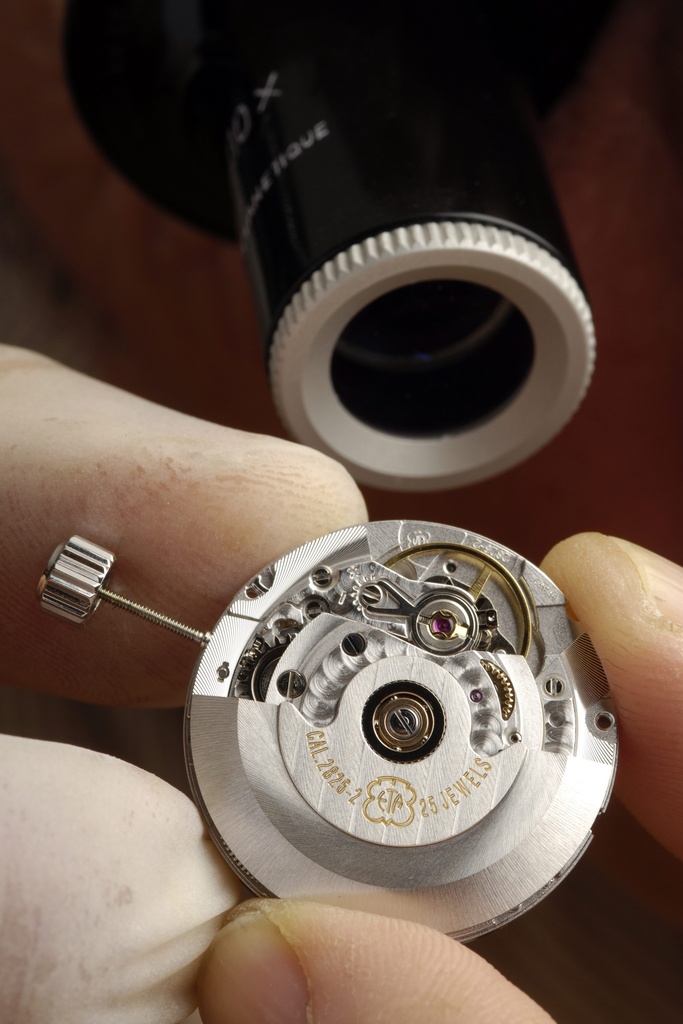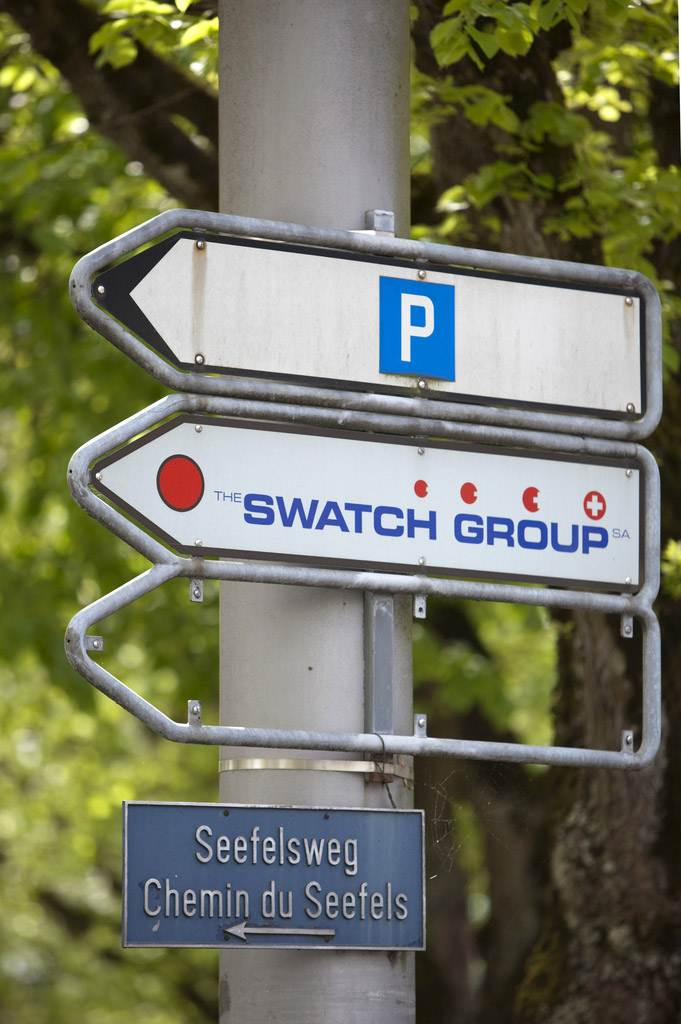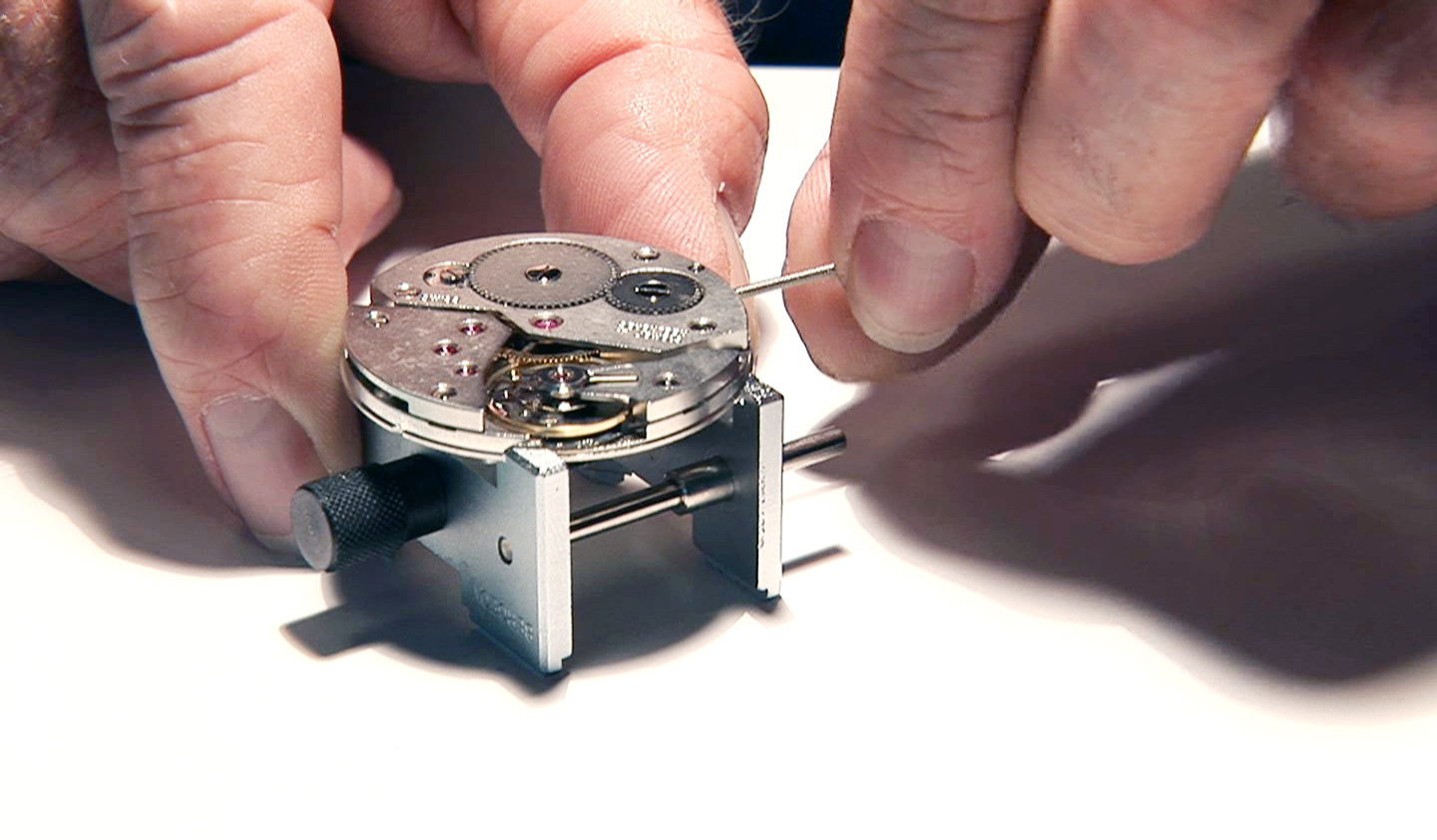Components cause battle inside the watch sector

The Swatch Group and independent watch brands are locked in a struggle over Swatch’s supply of components to third parties.
The world’s largest watchmaking concern, which is based in Biel, has told the Swiss Competition Commission (Comco) for a long time it wants to reduce its supply of movements and movement blanks to other watchmakers.
Comco has given permission for the Swatch Group to reduce its supplies to independent brands from January 2012, which not surprisingly has angered the smaller manufacturers.
What has upset the independent brands is not so much the policy of the Swatch Group but the time limit set by Comco, which they say is too short for other makers of movements to react to fill the gap.
Comco, at the request of the Swatch Group, has now opened an investigation to find out if the reduction in supply violates the law on cartels.
It will also look into the Swatch Group’s aim to stop all supplies of mechanical movements and components to third parties.
Fury
A statement from the Frederique Constant brand in Geneva said “independent brands are furious”.
“What exactly is the Competition Commission for, apart from favouring monopolies?” Frederique Constant CEO Peter Stas asked after Comco’s decision to authorise the Swatch Group to lower its shipments of movements (-15%), and components (-5%) to third companies.
It’s a drop that will reach 30% for movement manufacturers, including Soprod and especially Sellita, the main competitors of ETA (owned by Swatch Group). Stas has told swissinfo.ch he is in the process of lodging an appeal.
His outrage was shared by Alain Spinedi, CEO of Louis Erard. “It’s scandalous! We will end up with a stock of already ordered components on our hands but a shortage of movements. How can we guarantee our sales next year?”
The late chairman of the Swatch Group, Nicolas G. Hayek had already said in January 2003 that there could be another crisis in Swiss watchmaking unless there was more innovation and investment.
“No innovation”
Hayek, a man who never minced his words, told swissinfo.ch at the time: “There was no innovation, no new development, and when I pushed them [other manufacturers] to start doing new production, everybody started shouting,” he said.
The latest twist in the tale came on June 10 when the Swatch Group said it had initiated an investigation by the competition authorities to find a way of reducing deliveries of mechanical parts to third parties.
The Swatch Group said the investigation sought a mutually agreed solution to allow it to gradually reduce its deliveries of mechanical components to third parties in the interest of the entire watch industry.
ETA, formed from a number of independent factories set up at the end of 18th century, is the lifeblood of the whole Swiss watchmaking industry.
It makes movements fitted in about 80 per cent of Swiss watch brands. Switzerland’s watch brands have become too dependent on the Swatch Group and have not invested enough in engineering, preferring to splash out on marketing campaigns featuring sports stars and actors, industry analysts say.
Colourful plastic Swatches
Swatch, best known perhaps for its colourful plastic Swatch watches, also owns higher-end brands such as Breguet, Blancpain and Omega.
A spokesman for the Swatch Group confirmed to swissinfo.ch that it would abide by the Swiss Competition Commission’s decision.
“The investigation will help determine which amicable solution we can agree upon whereby Swatch can reduce its supply of mechanical watch movements and pieces to third parties in a phased manner; this is something that is of interest to the entire watch industry.”
Becoming the leading producer of watch micro-components has had a perverse effect on Swatch, as other watch manufacturers are not investing in upgrading their machinery and processes, or do not do so sufficiently, and thus do not share risks with Swatch.
During the 2009 recession, the company put the brakes on certain orders and did not reactivate them until the market began to recover, Swatch claims.
Swatch refuses to “continue operating as a supermarket for watch pieces”, he added.
It declares it has the legitimate right to decide who it wishes to work with and to whom it wishes to sell its watch pieces.
ETA designs and manufactures mechanical and automatic watches, watch movements and watch ébauches (blanks). ETA has its headquarters in Grenchen, and is a wholly owned subsidiary of the Swatch Group.
Although the company produces finished watches and movements, ETA specialises in the production of ébauche movements used both in watches of sister Swatch Group subsidiary brands and in the watches of competitors, including those owned by luxury group Richemont.
With the exception of hairsprings manufactured by sister company Nivarox, ETA maintains vertical control over the manufacturing of all the components required to create a watch movement and therefore is considered a true manufacture d’horlogerie.
ETA supplies the overwhelming majority of movements found in Swiss watches, and they are considered the workhorses of the industry.
This is an incomplete watch movement. Until about 1850, the ébauche consisted of the bottom plate, bars, fusee and barrel. The old Genevese watchmakers called the ébauche le blanc i.e. the blank.
In the early 19th century, the ébauche was made up of two plates with pillars and bars, the barrel, the fusee, index, click and ratchet-wheel, and a few assembling-screws. These parts were all roughly filed and milled. The steel and brass parts were manufactured in special workshops.
The modern ébauche is a jewelled or non-jewelled watch movement , without its regulating organs, mainspring, dial or hand, lating organs, mainspring, dial or hands.
(Source: G.-A. Berner dictionary of professional horology)
(Adapted from German by Robert Brookes)

In compliance with the JTI standards
More: SWI swissinfo.ch certified by the Journalism Trust Initiative













You can find an overview of ongoing debates with our journalists here . Please join us!
If you want to start a conversation about a topic raised in this article or want to report factual errors, email us at english@swissinfo.ch.